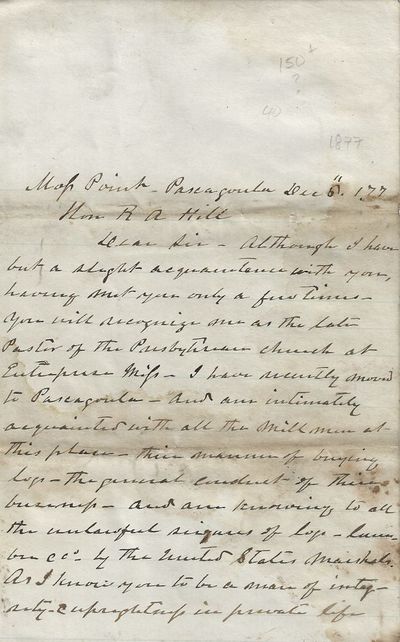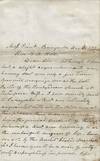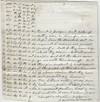Unbound
1877 · Moss Point, Pascagoula, Mississippi
by S. J. Bingham
Moss Point, Pascagoula, Mississippi, 1877. Unbound. Very good. This six-page letter was written by S. J. Bingham to R. A. Hill. It is datelined, “Moss Point – Pascagoula [Mississippi] Dec 11. 1[8]77.” In nice shape. There is no mailing envelope. A transcript will be provided.
In this letter, Bingham, a Piney Woods Presbyterian minister, implores Hill, a federal judge appointed by President Johnson, to protect Pascagoula lumber mill owners and workers from the systematic efforts by federal marshals to destroy the region’s timber business and regional economy. While Bingham makes no mention of the marshals’ motivation, it would be quite likely (truncated)
In this letter, Bingham, a Piney Woods Presbyterian minister, implores Hill, a federal judge appointed by President Johnson, to protect Pascagoula lumber mill owners and workers from the systematic efforts by federal marshals to destroy the region’s timber business and regional economy. While Bingham makes no mention of the marshals’ motivation, it would be quite likely (truncated)




